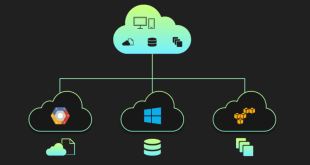In the ever-evolving landscape of cloud computing, a groundbreaking innovation has emerged: Quantum Cloud, a next-generation storage technology that is set to revolutionize the way we store and access data online. This cutting-edge technology combines the power of quantum computing with cloud storage, offering unprecedented levels of security, speed, and scalability. In this blog, we delve into the intricacies of Quantum Cloud, exploring its various types, advantages, and the potential it holds for the future of online data storage.
Understanding Cloud Storage
Before we delve into Quantum Cloud, let’s first understand the basics of cloud storage. Cloud storage refers to the practice of storing data on remote servers accessible via the internet. This method has gained immense popularity over traditional on-premises storage due to its flexibility, cost-effectiveness, and ease of access. Users can upload, manage, and retrieve their data from anywhere with an internet connection, making it a vital component of modern data management systems.
The Evolution of Quantum Computing
Quantum computing is a mind-boggling field that harnesses the principles of quantum mechanics to perform complex computations at speeds exponentially faster than classical computers. While traditional computers use bits to represent data as 0s and 1s, quantum computers use quantum bits or qubits, which can exist in multiple states simultaneously through a phenomenon known as superposition. This capability enables quantum computers to tackle problems that are practically impossible for classical computers to solve efficiently.
Introducing Quantum Cloud
Quantum Cloud is an ambitious fusion of quantum computing and cloud storage. By leveraging the power of qubits, Quantum Cloud promises unparalleled data security, ultra-fast data processing, and virtually infinite storage capacity. The potential of this technology has captured the attention of tech giants and researchers worldwide, heralding a new era in data management.
Types of Quantum Cloud Storage
Qubit-based Storage Arrays
In Qubit-based Storage Arrays, data is encoded into qubits, allowing for a vast increase in storage capacity compared to traditional binary systems. Moreover, qubits’ superposition property enables parallel processing, resulting in blazing-fast data retrieval and manipulation.
Quantum Key Distribution (QKD)
Quantum Key Distribution offers an advanced method of encrypting data with an unbreakable quantum code. This revolutionary technique ensures that data remains secure during transmission, safeguarding it from potential cyber threats.
Quantum Data Centers
Quantum Data Centers are the physical manifestations of Quantum Cloud technology. These centers house quantum processors and storage arrays, providing on-demand quantum computing and storage resources to users.
Advantages of Quantum Cloud
Unparalleled Security
Quantum Cloud’s encryption techniques, such as QKD, offer a level of security that is practically invulnerable to hacking attempts. This makes it an ideal choice for safeguarding sensitive data and critical operations.
Lightning-Fast Data Processing
The quantum parallelism in Quantum Cloud enables data to be processed at breakneck speeds, significantly reducing latency and enhancing user experience.
Scalability and Resource Efficiency
Quantum Cloud’s ability to scale seamlessly ensures that businesses and individuals have access to the exact computing and storage resources they need, eliminating unnecessary waste and optimizing resource utilization.
The Future of Quantum Cloud
The potential applications of Quantum Cloud extend beyond data storage and computing. Industries such as finance, pharmaceuticals, logistics, and artificial intelligence are already exploring the possibilities of harnessing Quantum Cloud’s capabilities to address complex challenges and unlock new opportunities.
Final Words
The emergence of Quantum Cloud marks a turning point in the realm of cloud storage and computing. With its unmatched security, lightning-fast data processing, and scalability, this next-gen technology promises to reshape the digital landscape and fuel innovation in various sectors. As researchers and developers continue to push the boundaries of quantum computing, we can expect Quantum Cloud to unleash its full potential and become an indispensable asset in the digital era.
Commonly Asked Questions
Q1: Is Quantum Cloud accessible to everyone?
A1: As of now, Quantum Cloud technology is in its nascent stage and primarily utilized by research institutions and tech corporations. However, with advancements and cost reductions, it is expected to become more accessible to a broader audience in the future.
Q2: How secure is Quantum Cloud compared to traditional cloud storage?
A2: Quantum Cloud’s security measures, such as Quantum Key Distribution, offer an unprecedented level of protection against cyber threats. It surpasses traditional encryption methods, making it significantly more secure.
Q3: Can Quantum Cloud replace traditional cloud computing?
A3: While Quantum Cloud shows incredible promise, it is not yet ready to entirely replace traditional cloud computing. Instead, it complements existing cloud solutions by offering enhanced security and processing capabilities.
Q4: What are the challenges in implementing Quantum Cloud on a large scale?
A4: Quantum Cloud’s implementation on a large scale faces challenges like quantum error correction, hardware reliability, and maintaining quantum coherence in complex systems. Ongoing research aims to overcome these obstacles.
Q5: How will Quantum Cloud impact data-intensive industries?
A5: Quantum Cloud’s superior data processing capabilities will revolutionize data-intensive industries like finance, healthcare, and machine learning. It will enable faster analysis and decision-making, driving innovation and efficiency.
 webfily
webfily



